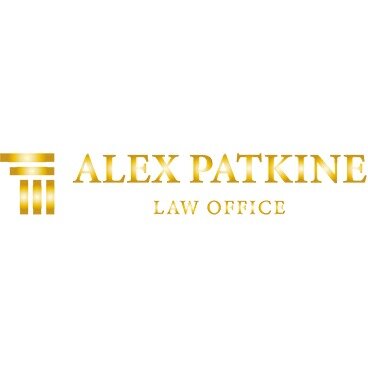Best Commercial Real Estate Lawyers in Haifa
Share your needs with us, get contacted by law firms.
Free. Takes 2 min.
Free Guide to Hiring a Real Estate Lawyer
List of the best lawyers in Haifa, Israel
About Commercial Real Estate Law in Haifa, Israel
Haifa, Israel's third-largest city, is a bustling hub for commerce and industry, making commercial real estate a vital component of its economy. The city's strategic location on the Mediterranean coast, alongside its status as a technological and industrial center, contributes significantly to the demand for commercial properties. Commercial real estate in Haifa encompasses a wide array of property types, including office spaces, retail properties, industrial facilities, and land for development. The legal landscape in Haifa is shaped by national laws and local regulations, which govern property transactions, leases, zoning, and development.
Why You May Need a Lawyer
Navigating the complexities of commercial real estate in Haifa can be challenging, and individuals or businesses involved in such transactions may benefit from legal assistance. Common situations requiring legal help include:
- Negotiating and drafting lease agreements to ensure fair and favorable terms.
- Conducting due diligence during property acquisitions to investigate existing legal rights and liabilities.
- Handling disputes between landlords and tenants, such as breach of lease agreements or maintenance issues.
- Resolving zoning and land use issues, ensuring the property complies with local regulations.
- Assisting in property development processes, including obtaining permits and licenses.
- Advising on the legal implications of financing and investment in real estate projects.
Local Laws Overview
Several key aspects of local laws in Haifa affect commercial real estate, and understanding these can be crucial for successful transactions:
- Zoning Laws: Determine the permissible uses of land and properties in different areas of the city, affecting property development plans.
- Land Registration: Managed by the Israel Land Authority, this process requires accurate documentation and registration of transactions to secure property rights.
- Lease Agreements: Subject to specific regulations that outline rights and obligations of both landlords and tenants, including termination and renewal procedures.
- Property Taxation: Commercial properties are subject to municipal property taxes, impacting the cost of owning or renting commercial spaces.
- Building Regulations: Compliance with safety standards and construction codes is essential for property development and modifications.
Frequently Asked Questions
What types of commercial properties are common in Haifa?
Common commercial properties in Haifa include office buildings, retail spaces, industrial warehouses, and land parcels for development.
What should I check before purchasing a commercial property?
Ensure thorough due diligence is conducted, including title searches, environmental assessments, zoning compliance, and inspection of physical condition.
How are lease agreements structured in Haifa?
Lease agreements typically include terms and conditions regarding rent, duration, renewal options, maintenance responsibilities, and dispute resolution mechanisms.
What are the typical zoning requirements for commercial properties?
Zoning requirements dictate the type of business operations allowed in specific areas. These include commercial, industrial, and mixed-use zoning categories.
How can property disputes be resolved?
Disputes can be addressed through negotiation, mediation, arbitration, or litigation, depending on the situation and the clauses in the contractual agreements.
Is it necessary to register a commercial lease?
While it is not always legally required, registering a long-term lease can provide additional security and public notice of the tenancy agreement.
What are the tax implications of owning commercial property in Haifa?
Owners are subject to municipal property taxes based on the property's value. Additionally, transactions may incur land appreciation taxes and VAT on rental income.
Are there restrictions on foreign ownership of commercial real estate?
While foreign ownership is generally permitted, certain restrictions may apply, particularly regarding land leased from the Israel Land Authority.
What should I do if I want to change the use of my commercial property?
You'll need to seek approval from the local planning authority, ensure compliance with zoning laws, and possibly secure new permits.
How can I finance a commercial real estate purchase?
Financing options include bank loans, real estate investment trusts (REITs), and partnerships, often requiring thorough appraisal and credit evaluation.
Additional Resources
For further assistance and information, consider the following resources in Haifa:
- Israel Land Authority: Official body managing land-related issues.
- Municipality of Haifa: Provides insights into local building regulations, zoning laws, and property taxation.
- Haifa Chamber of Commerce: Offers resources and networking opportunities for businesses in the commercial real estate sector.
- Israel Bar Association: Helps find qualified legal professionals specializing in real estate law.
- Local Real Estate Firms: Can provide market insights, property listings, and professional guidance.
Next Steps
If you require legal assistance in commercial real estate in Haifa, consider the following steps:
- Consult with a specialized real estate lawyer familiar with Haifa's property market and legal landscape.
- Gather all relevant property documents and financial records to facilitate a thorough legal review.
- Engage in discussions with potential partners or financiers to explore financing options.
- Consider joining workshops or seminars conducted by local chambers of commerce or real estate associations.
- Regularly monitor changes in zoning laws or property regulations through official municipal channels.
Lawzana helps you find the best lawyers and law firms in Haifa through a curated and pre-screened list of qualified legal professionals. Our platform offers rankings and detailed profiles of attorneys and law firms, allowing you to compare based on practice areas, including Commercial Real Estate, experience, and client feedback.
Each profile includes a description of the firm's areas of practice, client reviews, team members and partners, year of establishment, spoken languages, office locations, contact information, social media presence, and any published articles or resources. Most firms on our platform speak English and are experienced in both local and international legal matters.
Get a quote from top-rated law firms in Haifa, Israel — quickly, securely, and without unnecessary hassle.
Disclaimer:
The information provided on this page is for general informational purposes only and does not constitute legal advice. While we strive to ensure the accuracy and relevance of the content, legal information may change over time, and interpretations of the law can vary. You should always consult with a qualified legal professional for advice specific to your situation.
We disclaim all liability for actions taken or not taken based on the content of this page. If you believe any information is incorrect or outdated, please contact us, and we will review and update it where appropriate.















